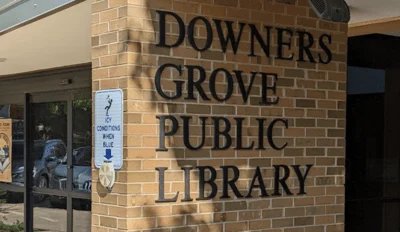Between 1995 and 2009, the Illinois exodus led to a net loss of approximately $26 billion in taxable income. | File photo
Between 1995 and 2009, the Illinois exodus led to a net loss of approximately $26 billion in taxable income. | File photo
Plainfield's Michelle Smith, the Republican candidate for state Senate in District 49, on Friday called for reforms to stop the exodus of Illinois residents.
"Every day, more jobs and more people leave our state," Smith said. "Illinois is failing. But we can change. We can put our state on a better path. The time to end the status quo and reform Illinois is now."
While other states in the Midwest have seen an exodus of residents, Illinois has outpaced its neighbors. Of the 975,000 people who left the region between April 2010 and July 2015, 425,000 were from Illinois. The state is ranked fifth in population in the nation, but while the surrounding states' out-migration has slowed since the end of the 2007-09 Great Recession, Illinois' exodus has increased.
Many residents are leaving for greener pastures. A lack of jobs and high taxes are pushing Millennials and working-age adults out of the state. The lack of a state budget has exacerbated the problem. The uncertainty of the state's economy coupled with discussion of raising the income tax back to the temporary rate of 2011-15 and making it permanent leaves residents with few options. Reinstating the higher tax rates would increase income taxes from 3.5 to 5 percent for individuals and 7.75 to 9.5 percent for corporations.
State Comptroller Leslie Geissler Munger warned, however, that if the backlog of unpaid bills is not addressed and a balanced budget implemented, residents may face income taxes of up to 7 to 8 percent.
In addition to the reduction in household incomes caused by higher income taxes, residents face increased property tax rates. Since 1990, property taxes have increased more than three times faster than median household incomes. Illinois residents pay the second-highest property taxes in the nation, and the taxes continue to rise.
The state's economic woes have also affected existing businesses. Large businesses have moved out of state while small businesses have cut back or closed. The resulting reduction in jobs is also forcing families to leave the state in search of employment.
As Illinois residents leave the state, they take their income with them. Between 1995 and 2009, the exodus led to a net loss of approximately $26 billion in taxable income. In one year, 2009, the net loss was $1.5 billion.
Illinois has not had a budget in more than a year. The budget was stalled in the legislature, with Gov. Bruce Rauner and Republican lawmakers calling for reforms while Democrats, led by House Speaker Mike Madigan (D-Chicago) and Senate President John Cullerton (D-Chicago) refused to consider any type of reform. The House passed an unbalanced budget that was $7 billion in the red and was voted down by the Senate. In turn, the Senate passed a budget bill that was voted down In the House, leaving the state without a budget for a second year in a row.
The stop gap budget passed by lawmakers in June provided funding for education and essential services, however, it was only a temporary measure. The state has a backlog of approximately $8 billion in unpaid bills. This backlog is expected to increase to $14 billion by the end of the fiscal year. Unless structural changes, out-of-control pension costs and budget cuts are addressed in November, when the legislature reconvenes, the state's finances will continue to careen out of control.
Smith, along with her Republican colleagues, is calling for pro-growth, term limit and bipartisan reforms to change the state government. They believe that reducing taxes by enacting money-saving measures, introducing pension reforms, making changes in worker compensation regulations and passing a balanced budget will encourage businesses to stay in Illinois and reduce the out-migration of skilled workers.






 Alerts Sign-up
Alerts Sign-up